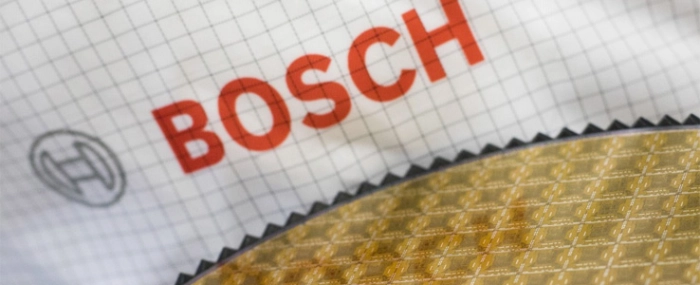
© Bosch
Business |
Bosch invests €1 billion into new wafer fab in Dresden
Every car nowadays makes use of semiconductors, and that has been true for quite a while. In 2018, every new vehicle featured semiconductors worth 370 dollars, and thanks to increasing electrification and automation, demand for chips in vehicles is expected to rise further over the next few years.
“Semiconductors may have been around for a long time, but we have yet to realize their full potential. These components are key to modern-day mobility, and it is impossible to imagine cars today without them,” says Jens Fabrowsky, member of the executive management of Bosch’s Automotive Electronics division, in a press release.
In 2016, every vehicle newly registered worldwide had an average of more than nine Bosch chips on board. And as demand for chips in cars is expected to rise, Bosch is looking to increase that number.
Bosch’s current semiconductor portfolio focuses on microelectromechanical systems (MEMS), ASICs for vehicle ECUs, and power semiconductors. Without the latter, there would be no hybrid or electric vehicles, as they regulate the electric motor and make sure that the battery is being used as efficiently as possible.
“Power electronics for hybrid and electric vehicles are a growth driver for Bosch,” Fabrowsky says. Besides electrification, continued strong growth in demand for driver assistance systems is ensuring that more semiconductors with more and more functions are finding their way into cars. Chips with built-in “intelligence,” ASICs, are tailored to a particular application; for instance, signaling to airbags in a vehicle when they should deploy. They also boost the measured signal from radar sensors, so that the proximity warning always functions reliably.
“Progress in microelectronics is what made development of assistance systems and automated driving possible in the first place,” Fabrowsky says.
Now, Bosch is underpinning its growth strategy for semiconductors with the single largest investment in the company’s history; it is putting some one billion euros into a new wafer fab in Dresden, which is scheduled to start manufacturing 300 mm wafers starting in 2021.
Compared with conventional 150 and 200 mm wafers, 300 mm wafer technology offers greater economies of scale. Up to 700 associates will be involved in the highly automated chip manufacturing process, working to plan, manage, and monitor production. After Reutlingen, the Dresden plant will be Bosch’s second wafer fab in Germany. With it, the company aims to expand its manufacturing capacity, and thus to further boost its competitiveness, the company writes in the release.

